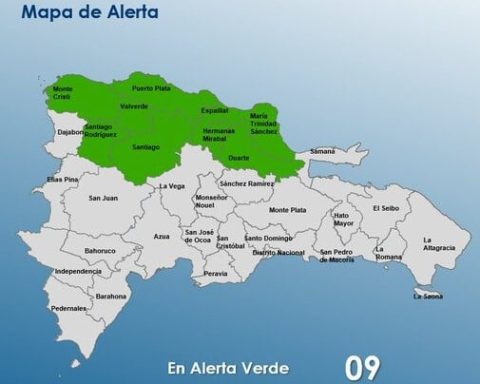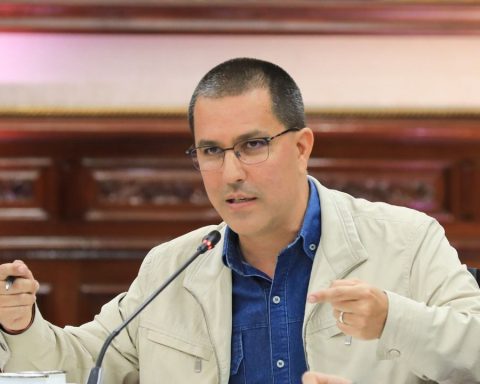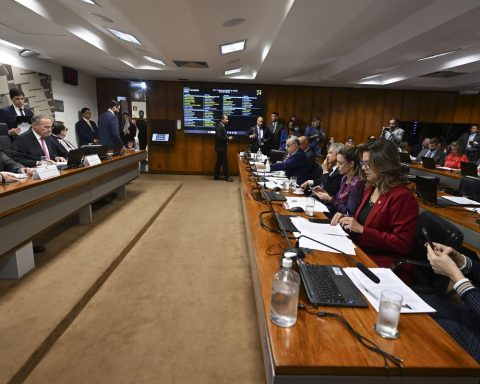Page Seven / La Paz
With two days left to leave office, the Ombudsman, Nadia Cruz, yesterday issued a critical report against the Government, in which she states that it failed to comply with several recommendations to control the use of mercury, while the president of Fencomin, Octavio Ramos downplayed the impact of that metal. He even said that he consumed it and that it did nothing to his health.
The report, called “Status of implementation and compliance with the Minamata agreement on mercury 2017-2022” contains 26 recommendations.
“The Plurinational State of Bolivia has not established the material, technical and economic conditions to protect human health and the environment from anthropogenic mercury emissions in the country, in accordance with the obligations signed by Law 759 of November 18, 2015 , through which the Minamata agreement on mercury was ratified”, is the main conclusion of the defense report.
The Minamata Agreement contains a series of obligations for the States: 1) The preparation of inventories on use, commercialization, emission, release, contaminated sites and others. 2) The reduction of the use of mercury in Artisanal and Small-Scale Gold Mining (ASM), identified as a major factor in the use of mercury and pollution. 3) The storage, transportation and commercialization of mercury. 4) The reduction and elimination in derived products.
According to the defense report, there are shortcomings and insufficiencies for: a) the identification of the sources of supply and traceability of the mercury trade; b) progressive reduction of mercury-added products; c) the abandonment, replacement or limitation of the use of mercury in manufacturing processes; d) the technological transition in the recovery of gold through less risky techniques for human health and the environment; e) the identification, monitoring and control of emissions and releases of mercury into water, air and soil; f) provisional storage and final disposal of mercury residues and waste, especially those from gold mining activities, and g) timely identification of sites historically contaminated by mercury, as well as those recently affected by this metal.
The defense report indicates that although Bolivia is not a country of primary extraction, between 2010 and 2020 the amount of imported mercury grew vertiginously, rising from 1.7 tons per year in 2010 to 165.2 tons in 2020.
The only action that sought to register importers and exporters and marketers, control the flow of mercury, was a draft supreme decree prepared by Udape that was not approved due to questioning of cooperatives. “There is resistance from the cooperative sector to mercury regulations, which are necessary to avoid the violation of the human rights of indigenous peoples and of Mother Earth,” Cruz observed.
The State assumed the obligation to present a national action plan to reduce the use and emissions of mercury generated in this type of activity; however, according to information from the Vice Ministry of the Environment, it is noted that there is no such plan that must be presented this month.
Nor have the central State and autonomous territorial entities developed regulations to oblige marketers to take appropriate mercury storage measures.
It warns that there are not enough State actions to identify sites contaminated with mercury; others aimed at avoiding or reducing the release and emission of mercury in the air, water and soil, as well as additional actions to generate information that contributes to the control of releases of this metal.
Fencomin reaction
The president of the National Federation of Mining Cooperatives of Bolivia (Fencomin), Octavio Ramos, assured that mercury is not used in all gold extraction, only in powdered gold, and clarified that the sector complies with environmental regulations, carries out monitoring and has environmental files.
He pointed out that it is necessary to discuss the use of mercury, but assured that many cooperatives no longer use it. This is the case of the 15 de Agosto, which operates in Illimani and uses “cyanide”, which is more polluting.
According to Ramos, there is no proven study to identify the degree of damage to health. “I want to say that 25 years ago I have consumed mercury, from 30 to 40 grams, because in artisanal mining, where there is nothing, we must necessarily use mercury in the same glasses. You arrive tired of your work and in the same glass you must drink, today I have no problem. That is why it is necessary to scientifically identify what mercury can cause,” Ramos remarked.
Some of the 26 lines of action that must be executed
The Legislative Assembly must develop regulations to control and reduce the importation of mercury, discourage its use in gold mining and industries that affect the quality of water, soil and air.
Greater control of the use of mercury; regulate its management, manipulation, storage and commercialization
The Ministry of Environment and Water must prepare, approve, finance and execute a multisectoral national action plan for the application of the Minamata agreement on mercury.
Prepare an updated national inventory of mercury emission sources in the country. Carry out a study on the feasibility of periodically reducing mercury imports, establishing deadlines
Identify sites contaminated by mercury, among others.
Municipalities and governorates must regulate the purchase and sale of mercury in their respective jurisdictions.
















